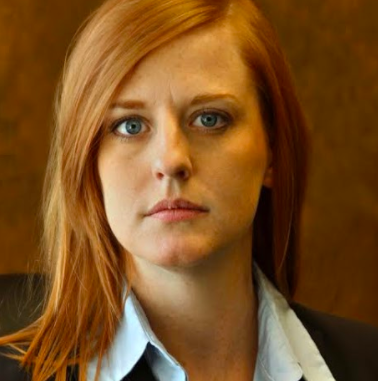
Renee Eveland, lawyer and Truman State University alumna, decided that current events should be a key topic for the two presentations she will give as this semester’s English and Linguistics Senior Seminar keynote speaker. She said this fall has been such a historic moment for the United States with the Kavanaugh hearings and the midterms. She thought if she were a senior in college, she would want to discuss the cultural, social and political issues happening right now in the country.
“These issues are going to be a major part of the trajectory of this country going forward,” Eveland said. “I thought that holding these discussions could be helpful for seniors who are likewise figuring out the trajectory of their lives.”
“Truth and Advocacy: What We Learned from the Justice Kavanaugh Hearings” is the first talk that will cover the Kavanaugh hearings and the midterms, and it will be politically neutral and interactive. Eveland said she will explore what the audience believed or misunderstood about the proceedings. Additionally, she will discuss the tools of persuasion she learned from her experience as trial lawyer over the past 10 years.
Eveland wants seniors, professors, and anyone interested in politics and social discourse to come and have a conversation. Eveland said she thought it was important to talk about a process that has left everyone feeling divided and frustrated.
“If we understand what the problem with the Kavanaugh hearings [is], fundamentally as a process, we can understand what could have been done differently,” Eveland said. “I think then we can get to the heart of the problem and work toward a solution.”
Eveland’s second talk, “English Degrees at Work: Careers in Trial Law,” will build on the discussions from the previous day. Eveland said she will talk about mechanisms used in trial law to avoid the issues present in the Kavanaugh hearings. She will discuss how English degrees are well-suited to careers in trial law since English majors develop skills, such as being able to communicate well with others and summarize difficult texts. She said that she employs those skills every day as a trial lawyer. She will also be discussing how persuasion techniques can be used in daily conversation and the workplace.
There is a lot of overlap with life, trial law and the Kavanaugh hearings, and that is what Eveland wants to focus on. Eveland said there is a mechanism in trial law called voir dire, which means “to speak the truth,” and that is how a trial begins. The trial lawyer starts to get to know their potential audience and picks out the right jurors for a particular case. People talk about their life experiences, and Eveland said that can be applied to people’s lives, such as talking to a neighbor and understanding their life story, or bonding with a loved one over a holiday meal.
“If you don’t understand their story and their life experience, you’re going [to] have a hard time talking about social or political problems because you are going to get down in the mud about life,” Eveland said. “You got to know those stories first, and then you can start working on problem-solving.”
Eveland said she hopes people will have a positive takeaway from the talks. She hopes the talks become some of many discussions that bring people to a better understanding of dialogue and deliberative process without letting people feel entrenched and feeling like nothing can be accomplished. She wants people to be engaged, and that the talk is more than just discussing a career in trial law. She said that there is a lot going on in the country and that warrants attention.
Eveland will present “Truth and Advocacy: What We Learned From the Justice Kavanaugh Hearings” at noon Nov. 29 and “English Degrees at Work: Careers in Trial Law” at 11:30 a.m. Nov. 30. Both sessions will be in Student Union Building Georgian Room B.
